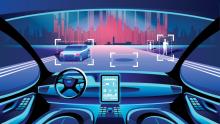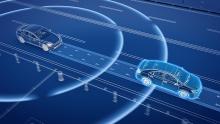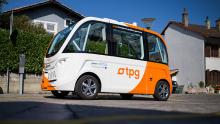Extensive tests to steer the future of self-driving cars

A thousand drivers will soon be taking to Europe's roads behind the wheels of self-driving cars - as part of an EU-funded project to test the safety and efficiency of automated driving.

A thousand drivers will soon be taking to Europe's roads behind the wheels of self-driving cars - as part of an EU-funded project to test the safety and efficiency of automated driving.

Hi-tech driver assistance systems being developed by EU-funded researchers aim to perfect the link between human and machine in self-driving cars. This could help prevent accidents and fatalities on Europe's roads.

Long trips in electric cars are often impractical due to difficulties in charging up a vehicle when driving from one country to another. An EU-funded project has set up a network to ensure that cars can be plugged into charging points in any EU country. This could make electric vehicles more attractive - benefiting industry and the environment.

An EU-funded project has improved understanding of people's choices when using a variety of shared transport services - such as carpooling. The analysis will help planners design more sustainable services better aligned to commuters' needs, encouraging them to leave their cars at home and thus easing road congestion.

An EU-funded project is developing user-centric, smart solutions that will help Europe's expanding urban areas boost their citizens' quality of life and improve the environment as they grow.

Ongoing progress towards a Cooperative Intelligent Transport System (C-ITS) will require precise positioning capabilities. EU-funded research has made it possible to achieve precision positioning with an accuracy of up to 25cm using combined technologies.

Seas have long been invaluable resources for EU countries. But those same seas can be conduits for piracy, drug trafficking and irregular migration. A group of security specialists has launched an EU-funded project to better integrate sources of maritime intelligence. The result will be safer seas for all who sail them.

Automated technologies are expected to help make driving both safer and more efficient. EU-funded research has been laying the groundwork for adapting to automated driving both technologically and through driver behaviour.

Critical infrastructure, like ports, face growing threats - both physical and cybernetic. In response, EU-funded researchers have developed novel 'hybrid' situation-awareness tools, including visualisation techniques for detecting, preventing, and mitigating the impacts of potential attacks.

No timetables. No fixed stops. No waiting ages in the rain. EU-funded researchers are running world-first trials of a public transport concept involving autonomous electric buses that may soon collect users on demand. Such fleets could be a less costly, greener option for areas where conventional services might not be viable.